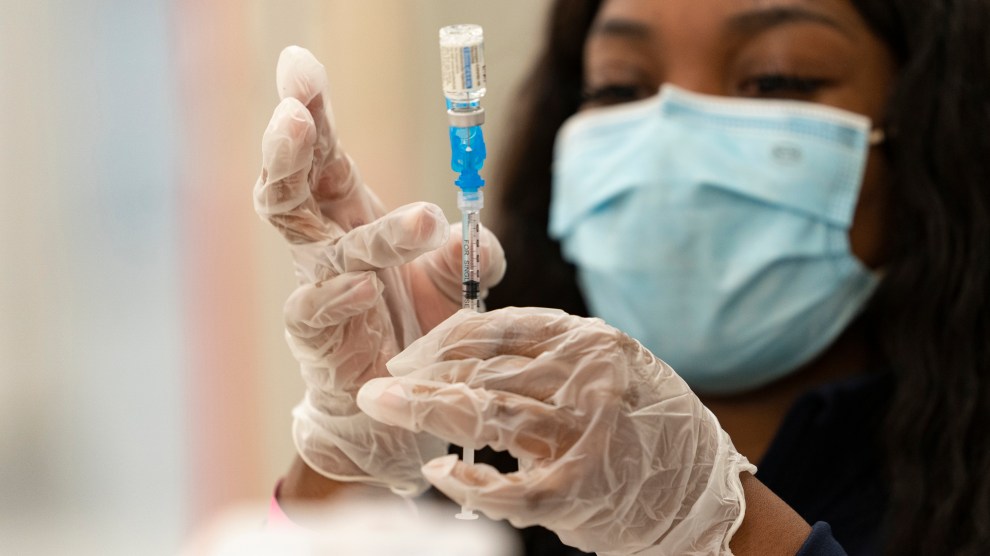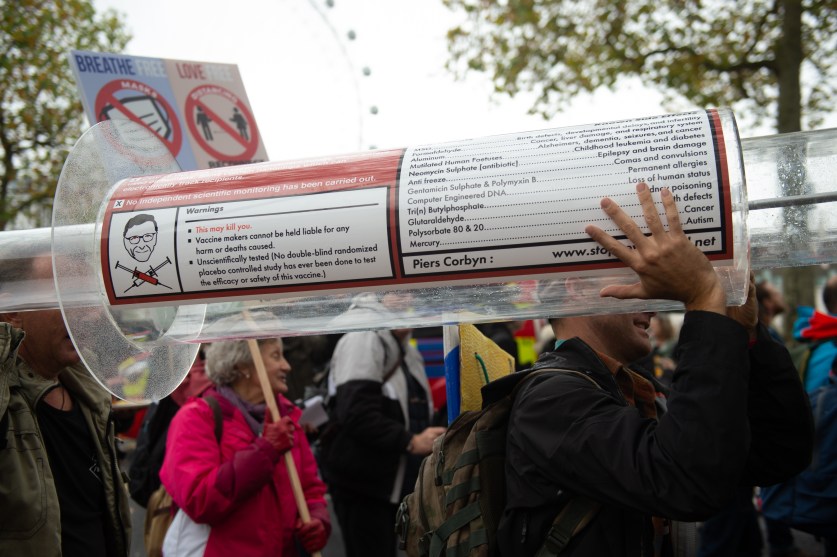
Melissa Melvin/AP
Speaking on Fox News Sunday, Dr. Anthony Fauci supported President Biden’s projections that American adults will have access to the vaccine by the beginning of May and the nation could achieve a sense of normalcy by July 4.
As of Sunday, 107 million Americans—more than a quarter of the country’s adults—have received at least one dose of the vaccine, according to the Centers for Disease Control and Prevention.
But we’re not out of the woods yet. Fauci warned against opening up too quickly in the face of all the good news. “When you pull back on things like masking and not paying attention to congregate settings, it is very risky to get another surge,” he said. “If you wait just a bit longer to give the vaccine program a chance to increase protection in the community, then it makes going back much less risky. But if you do it prematurely, there really is a danger of triggering another surge.” Such warnings did not deter Texas Gov. Greg Abbott, who earlier this month made headlines when he lifted the state’s mask mandate and increased capacity in businesses to 100 percent.
And even though vaccine distribution is at a record high, the doses aren’t being distributed equally. Of those Americans who have received both doses, roughly 7 percent are Latino and another 7 percent are Black—despite those groups making up 19 and 13 percent of the US population, respectively. Stories abound of white “vaccine chasers” flooding vaccination sites intended to serve communities of color, from Washington, DC, to South Dallas.
Last week, at a church in West Oakland that opened a first-come-first-serve vaccination site intended for Black and Latino community members, 60 percent of doses went to white people. “I’ve had people camping out starting at 2:30 a.m. to be first in line,” Pastor Michael Wallace of Mount Zion Missionary Baptist church told the San Francisco Chronicle.
The trend maps the contours of the preexisting disparities that made the coronavirus so disproportionately devastating to Black and brown communities. As my colleagues Edwin Rios and Dave Gilson wrote, Black and Latino Americans took on greater risk of exposure as frontline workers and were more likely to be infected and killed by the virus. Harvard health professor Dr. Mary Bassett told Mother Jones, none of these inequities are caused by the virus itself. Rather, she said, “It’s because of the social consequences of race in our society, which has been reinforced by decades, centuries of bad practices and policies.”










